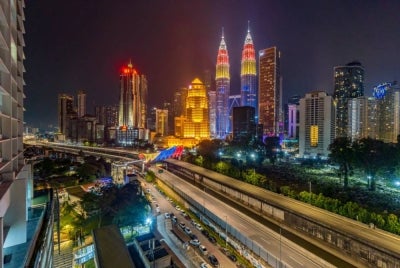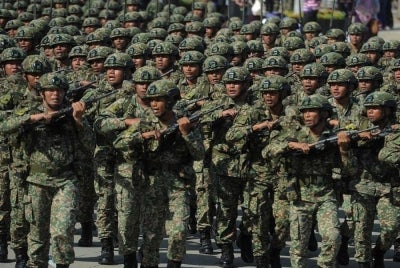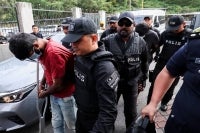Ending poverty in Malaysia: Is it doable?
SUHAIZA HANIM MOHAMAD ZAILANI
Ending extreme poverty and all other kinds of poverty is the most significant global issue and a crucial component of sustainable development. As such, "End poverty in all its forms everywhere" is the primary objective of the Sustainable Development Goals (SDGs).
Malaysia set an RM1,500 minimum salary in effect in 2020. Recent statistics from the Malaysian Statistics Department (DOSM) show that this policy has stimulated a 7.7 per cent increase in the median pay, rising to RM2,424 in 2022 from RM2,250 in 2021.
Nevertheless, the poverty rate increased from 5.6 per cent in 2019 to 6.2 per cent in 2022, and 490,000 households continue to fall below the average national poverty threshold.
As of Aug 15 last year, the government is still working to raise over 114,000 deeply impoverished households out of poverty.
The 12th Malaysia Plan (12MP) mid-term review, which concentrates on creating an economically productive community by offering social safety and employment possibilities, seeks to further efforts to eradicate poverty, raise the standard of living of Malaysians, and expand their access to essential services.
According to Professor Dr Yeah Kim Leng of Sunway University Business School, these objectives align with the SDGs, which acknowledge that eradicating poverty and other forms of deprivation requires enhancing health and education, lowering inequality, and promoting sustainable economic growth.
To end extreme poverty, RM1.5 billion has been allocated for initiatives and projects that can provide income for target communities.
To consistently improve the country's social protection, health care, and education systems, the World Bank advised Malaysia to diversify its revenue sources.
Matthew Wai-Poi, the lead economist for poverty and equity, recommended that the government explore expanding the personal income tax base and enacting a sizable consumption tax with few exemptions.
The Malaysia Madani framework, which includes eradicating poverty as one of its three key initiatives, was introduced by the Unity Government in January 2023. The framework strives to eradicate poverty and stimulate the economy through restructuring and restoration.
It is firmly rooted in six essential values: compassion, respect, trust, innovation, prosperity, and sustainability. Following the Malaysia Madani concept's guiding principles, the government can develop fresh short- or long-term strategies to end poverty.
Numerous programs and initiatives are being implemented to end poverty, including the Program Pemerkasaan Ekonomi Komuniti Bandar, Skim Pembangunan Kesejahteraan Rakyat for rural residents, Program Pembangunan Ekonomi Orang Asli, Program Khas Bumiputera Sarawak, and Program Khas Anak Negeri Sabah.
Additionally, the government has introduced Inisiatif Pendapatan Rakyat (IPR), a two-pronged strategy that aims to boost household income while addressing structural economic problems.
As of Aug 31 last year, the IPR initiative had received 106,492 applications from people who wanted to promote their food goods using vending machines and safe equipment and training to grow strategic crops, including whole grain maize and chilies.
The plan also intends to assist the extremely poor in generating additional revenue through agricultural and entrepreneurial endeavors and develop work possibilities with a respectable wage, particularly for those engaged in 3D (dirty, dangerous, and complex) professions.
As mentioned by Prime Minister Datuk Seri Anwar Ibrahim, who is also the Finance Minister, cash assistance and the Rahmah program would be maintained and enhanced to guarantee the ongoing improvement of the social security system.
Meanwhile, former Deputy Prime Minister and Bandar Tun Razak MP Datuk Seri Dr Wan Azizah Wan Ismail was quoted saying that the engagement sessions for the Prime Minister's Department's Hardcore Poverty Eradication Programme are a proactive step in accomplishing the Unity Government's goals to end hardcore poverty.
Apart from continuing to implement programs and initiatives planned, it is necessary to design new aid programs that are appropriate for the requirements of vulnerable populations like seniors and people with disabilities, as well as the existing circumstances and the country's budget.
Human capital development must be implemented to make sure that the poor and highly deprived populations are not only physically but also intellectually prepared for the change in their level of living.
This vision is consistent with the opinions of Malaysia's Economy Minister Rafizi Ramli, who was recently reported as saying that the country's attempts to become a high-income country must be concentrated on its sustainable development objectives, knowledge-based economy, and national technological development.
Hence, initiatives like Technical and Vocational Education and Training (TVET) must be successful for Malaysia to achieve its high-income goals, highlighting the significance of vocational training for the development of the economy.
TVET is essential because it bridges the skills gap by aligning education with industry demands, developing a trained and adaptable workforce, and improving Malaysia's competitiveness on the global stage and investment appeal.
To conclude, a national strategy integrating the public and corporate sectors, academics, civil society organisations, community-based organizations, and local communities will boost the execution of programs to eradicate poverty. To have a long-lasting effect on people's lives, these efforts must be continued throughout time.
The author is Datin Seri Prof Dr Suhaiza Hanim Mohamad Zailani, Director of the Ungku Aziz Centre for Development Studies, Universiti Malaya. She may be reached at shmz@um.edu.my. The views expressed in this article are the author's own and do not necessarily reflect those of Sinar Daily.
Download Sinar Daily application.Click Here!














